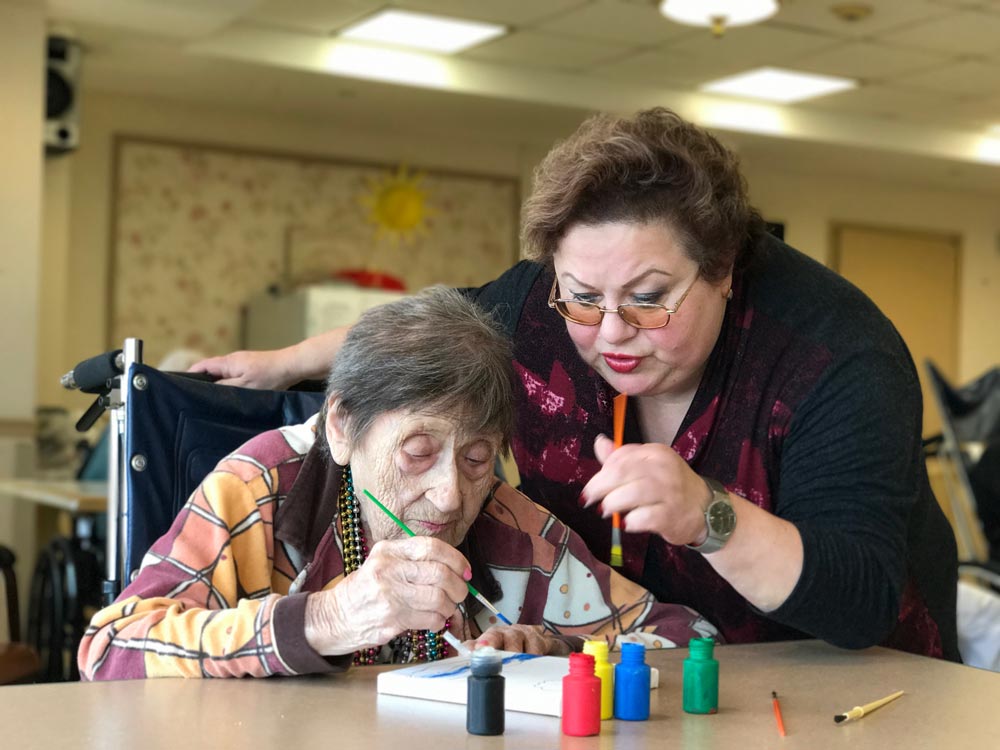Top Quality Memory Care Facility Charlotte: Where Empathy Meets Professional Expertise
Top Quality Memory Care Facility Charlotte: Where Empathy Meets Professional Expertise
Blog Article
How to Provide Purposeful and Customized Dementia Care
The arrangement of customized and purposeful mental deterioration care needs a nuanced understanding of each individual's special history and choices. Care approaches must be tailored to involve the person in means that resonate with their past experiences, consequently promoting psychological connections and improving general health.
Understanding Mental Deterioration Individuality

Care providers should examine cognitive capacities, emotional states, and behavioral patterns to create personalized treatment plans. This might include adapting communication styles, utilizing familiar routines, and utilizing significant activities that resonate with the person's past experiences. As an example, engaging a person with an enthusiasm for songs via music tasks may evoke positive memories and enhance emotional well-being.
In addition, recognizing uniqueness promotes a thoughtful strategy that appreciates the dignity and autonomy of those coping with mental deterioration. It motivates caregivers to pay attention proactively, observe behavioral cues, and continue to be adaptable in their caregiving techniques (charlotte care home). By prioritizing originality, caretakers can not just boost the lifestyle for those with dementia yet likewise construct a more profound understanding of their unique perspectives, eventually bring about much more efficient and understanding care
Building Depend On and Connection
Establishing count on and relationship is essential in dementia care, as it produces a supportive and secure atmosphere for people impacted by the condition. Structure these links requires constant, thoughtful interactions that prioritize the requirements and feelings of the individual. Caretakers must come close to interactions with empathy, recognizing the unique difficulties dealt with by those with mental deterioration, including memory loss, confusion, and emotional distress.
Efficient communication is vital in this procedure. Caretakers need to make use of clear, straightforward language and non-verbal signs to share understanding and support. Active paying attention demonstrates regard and recognition, permitting individuals to express themselves without concern of judgment. Furthermore, maintaining a tranquil temperament can aid reduce anxiousness, fostering a complacency.
Developing a routine can additionally boost count on. Experience with day-to-day tasks and caregivers advertises a feeling of security, enabling individuals to really feel even more at convenience. It is important to engage with people on a personal level, putting in the time to learn more about their biography, choices, and passions. By doing so, caretakers enhance the individual's identity, promoting dignity and regard, eventually leading to more powerful, more purposeful relationships in the context of dementia care.
Tailoring Activities and Involvement
Involving people with mental deterioration via tailored activities can dramatically enhance their lifestyle and cultivate a deeper link in between caretakers and those in their care. Customization is necessary, as it acknowledges the special backgrounds, interests, and capacities of each person. Tasks need to be designed to boost cognitive functions, promote physical movement, and encourage social interaction, all while remaining satisfying and satisfying.
To tailor activities properly, it is vital to analyze the individual's preferences and cognitive abilities. Some may locate delight in gardening, while others could value music or art. Straightforward, acquainted tasks can stimulate positive memories and give a feeling of accomplishment. Furthermore, including elements of regimen can use comfort and stability, allowing individuals to engage with activities a lot more with confidence.
Caretakers can boost involvement by taking part together with the people, cultivating a encouraging and interactive environment. It is additionally crucial to remain adaptable and adaptive, readjusting activities as required based upon the individual's power levels and state of mind. Ultimately, meaningful engagement through tailored activities not just boosts people with dementia but also improves the caretaker relationship, advertising mutual enjoyment and understanding.
Efficient Interaction Techniques
Effective interaction is important in mental deterioration care, as it fosters a sense of connection and understanding between people and caregivers experiencing cognitive decrease. Using reliable communication methods can substantially enhance the quality of interactions and lower aggravation for both events.
First of all, making use of basic, clear language is important. Familiar words and short sentences assist individuals comprehend and respond better. In addition, keeping a tranquility and positive tone can create a reassuring setting, which is important for people who might really feel baffled or anxious.
Non-verbal interaction plays my site a substantial duty. Caregivers ought to take notice of body movement, faces, and gestures, as these hints can typically share more than words - memory care charlotte. Developing eye get in touch with and using mild touch can likewise convey and reinforce links empathy
Active listening is another crucial part. Caretakers ought to listen, allowing individuals to express themselves completely, even if their speech is fragmented or unclear. This reveals respect and encourages much more open interaction.
Finally, verifying experiences and feelings is crucial. Acknowledging emotions, no matter their basis in reality, can offer convenience and enhance the caregiver-individual connection, promoting a more supportive atmosphere.
Supporting Household Involvement
Family members participation plays a considerable role in the total care and support of individuals with mental deterioration. Engaging family members creates a joint setting that improves the top quality of care, promotes emotional links, and ensures that the one-of-a-kind needs of the person are fulfilled. Household members often possess important understandings into the person's background, preferences, and actions, which can be vital in creating personalized care methods.

In addition, member of the click to read more family can be encouraged to take part in daily care activities, such as participating in significant discussions or assisting with familiar routines. This not just helps endure the person's sense of identification but likewise strengthens domestic bonds. Inevitably, by cultivating a comprehensive method that values family members payments, treatment companies can boost the total experience for both people with mental deterioration and their enjoyed ones.
Conclusion
In conclusion, delivering significant and personalized dementia treatment necessitates an extensive understanding of each person's special background and choices. Collectively, these approaches add to boosted quality of life for individuals with mental deterioration.
The arrangement of purposeful and customized mental deterioration care calls for a nuanced understanding of each person's unique background and preferences. By doing so, caregivers enhance the individual's identity, promoting self-respect and regard, eventually leading to stronger, a lot more purposeful partnerships in the context of mental deterioration treatment.
Engaging people with mental deterioration with tailored tasks can considerably improve their top quality of life and promote a much deeper link between caregivers and those in their view it now treatment.Family members participation plays a substantial duty in the general treatment and support of people with dementia. Ultimately, by fostering an inclusive approach that values family payments, care suppliers can boost the general experience for both individuals with dementia and their loved ones.
Report this page